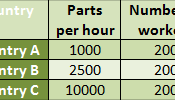"I have absolutely no right to be explaining philosophy," I declare.
You exclaim, "Absolutely!"
These above uses of 'absolutely' are a form of an intensity adverb and "emphatic agreement", respectively, and in society, the aforementioned uses would never be questioned because I have no background in philosophy, I have never taken a philosophy class, and all I know is that Plato's name is as notorious in college as play-dough is in elementary school (Sparkes 205). After researching philosophers and their beliefs, or lack of beliefs, in absolute truth, I have reasoned that the philosophical use of 'absolute' is a concept in its entirety and is unequal to the social meanings of 'absolute'. Also, within my research, I have found that the existence of truth and absolute truth and the theory of relativity are two substantially related topics of argument. I am unable to take a stand for which argument I applaud at this time because my knowledge of both topics is limited and not broad enough to make a classification of either topic as right or wrong.
To understand the underlying arguments of both sides, 'truth' must be justly defined. The philosophical definition of 'truth' is best understood through the adopted term 'pragmatic'. Pragmatic describes "a type of judgment about which there can be no objective certainty but about which one is practically certain" (Brown 233). Basically, truth is found when, in making a decision of one statement over a second statement, the second statement has a vindicated certainty of being incorrect. An example of a statement by Jack and Jill show a decision made today of whether it will rain tomorrow or not:
Jack says, "It will rain tomorrow."
Jill says, "It will not rain tomorrow."
Both people are choosing one statement over another statement, but these are not...


